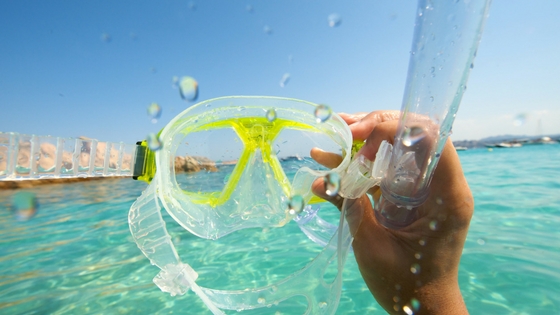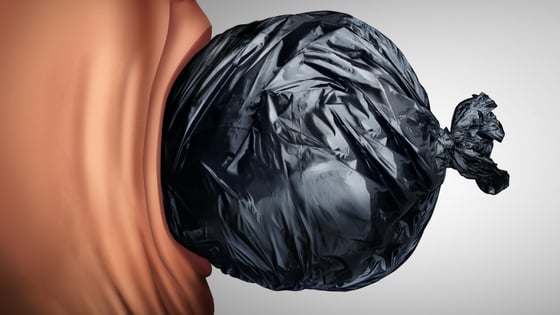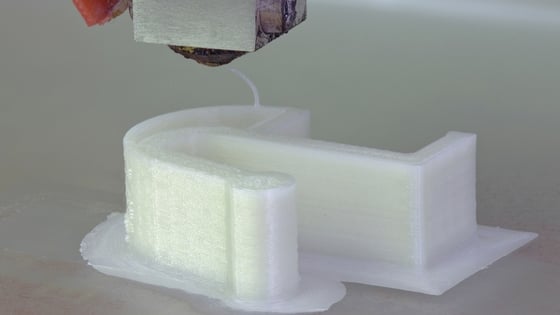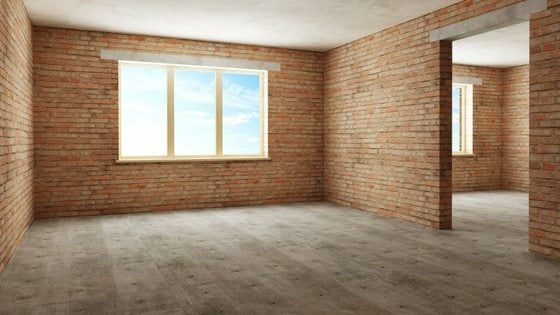
Could This Little Machine Help You Recycle Garbage? ♻️
Recycle Garbage ♻️: As a business, Waster has a real focus on helping the environment and reducing waste going to landfill. Of course, one of the biggest issues is the production of waste in the first place. Wouldn’t it be great if people had a machine in their house that could recycle garbage directly and not require garbage collection or bins at all?
>Download Now: Free PDF Business Owners Guide To Commingled Recycling Bin Services
In today’s blog, we will check out a new machine that promises to transform what we do with used plastics and hopefully provide them with a new lease of life.
Waster is a real alternative for small and medium Australian businesses as we provide low-cost and reliable waste and recycle garbage bin services on flexible agreements – 30-day terms and no hidden extras! You can book your required bin services, as well as grease trap cleaning and other recycling options, online by pressing the button below:
How good would it be to be able to recycle the garbage in your own home or office?
The idea of having plastic or garbage consumed by bugs or tiny organisms has been discussed in many contexts. In fact, we have heard previously that people sometimes dislike this option as they feel sorry for the welfare of the bugs. We have previously covered solutions such as this when we looked at the Great Ocean Garbage Patch in National Resource Recovery.

According to the BBC:
“Eventually, we’ll have to get better at recycling plastic, if only because oil won’t last forever.
“Some plastics can’t be recycled – like Bakelite. Many more could be, but aren’t. In fact only about a seventh of plastic packaging is recycled – far less than for paper or steel. That rate is lower still for other plastic products.”
The ProtoCyler promises to let you recycle plastic yourself. The sales pitch on the website is stated below:
“ProtoCycler is a revolutionary new product that allows you to recycle waste plastic into valuable 3D printer filament. It comes complete with a built in grinder, distributed spooling, and intelligent computer control with real time diameter feedback. It’s also fully UL safety certified, so you don’t have to worry about where it’s used. With just the turn of a crank and push of a button, ProtoCycler automatically creates filament – safely, easily, and affordably.

Additionally
“ProtoCycler creates ABS filament or PLA filament, so it can be used with any desktop 3D printer. This empowers the user with true creative freedom, as both the economic and environmental costs inherent to 3D printing are removed when ProtoCycler is used! Designed with ease of use and safety in mind, ProtoCycler is equally at home in the lab, workshop, or classroom – it has UL safety certification and fully automatic operation. It also saves 80% or more of your filament costs, so it will save you a ton of money no matter what you want to create. Simply put, if you 3D print, you need ProtoCycler!”
This is certainly an exciting development and one we will certainly keep you updated on. If we could recycle garbage into a valuable commodities that would be used for 3D printing the possibilities are endless!
While you’re at it, see our blog on garbage disposals.
Would you wear clothes made from recycled plastic?
In recent blogs, we have covered the developing waste and recycling crisis in Australia as China is no longer prepared to process the garbage recycling that we send to them each year. The clampdown by China on low-quality recycling products means that Australia (and many other countries) need to find a sustainable processing system and output for the garbage recycling collected. We would also want to process the garbage and add them to roads or houses for the sustainable future of recycling in Australia.
About Waster
Waster helps small Aussie businesses boost their recycling, save costs and not worry about bin collections. See our blog on upcycling.
Additionally, we deliver our services on flexible 30-day agreements, so you never need to worry about rollover clauses or lock-in contracts again.
Furthermore, we do not charge hidden extras and make garbage collection super easy. You can book all your waste collection and recycling needs as well as services such as sanitary bins online today:
What are our options?
Fundamentally, if we can not send garbage recycling to China, we need to select one of the options as below:
- Send all unprocessed waste to a landfill.
- Incinerate the waste to produce energy such as in Sweden
- Invest in new recycling facilities so we do not need to send the product overseas.
Of the options above, the third option, to recycle rubbish in Australia is probably the most palatable from an environmental standpoint.
The problem with this option is that we need a real manufacturing base that can actually use recycled product. Otherwise, it will be stockpiled, sent to landfill after all, or sold overseas. However, there is limited demand for further recycling to be shipped overseas.
In this part of the blog, we will look at the possibility of using recycled plastic to build better roads and homes.

Can we build better roads from collected and recycled garbage?
We recently covered how bacteria could make plastic waste disappear, but maybe waste plastic could be very valuable after all.
Recently the Australian Council of Recycling (ACOR) suggested that Australia puts $150m into building sustainable solutions for the crisis.
Quoting the ABC:
“Once the material is separated, cleaned and ground up, it would probably be able to be sold to the international market.
But that still means shipping our waste overseas and relying on those countries’ systems continuing to buy it.
To create demand in Australia, ACOR has called for the Government to invest:
- $20m in preferentially choosing to buy recycled material when it builds roads and other infrastructure
- $8m for research and innovation
- $4m for a scheme to encourage the public to buy recycled products”
Obviously, one of the most promising large volume solutions for plastic waste would be to use it to help construct new roads.
MacReBur is a company that manufactures plastic pellets for use in road construction:
“What we’re able to do is to take this plastic that has been thrown away, and use a special formula to clean it off, create pellets using it, and then use those pellets to add to a mixture of rocks and bitumen to make longer-lasting roads.”
Benefits of these new roads made from recycled garbage
The reported benefits from these roads are manifold and include:
- reduce plastic waste going to landfill
- 60% tougher than asphalt
- easily modified to suit different environments
- reduces potholes
- easily left holes in the road for wiring, etc.
- easily assembled and fitted
- reduces the need for fossil fuels – which asphalt uses
- possibility of heated roads so as to prevent freezing
- cheaper to use
All in all, it sounds like a great option.
Please see our blog on green waste disposal for a similar read.
Below, you can also see a video below from the BBC extolling the benefits of plastic roads and even asking if they save the planet:

What about better homes?
Concrete is one of the few low-technology products that is not transported overseas. Naturally, due to the weight, it makes sense to manufacture it in developed countries.
Is it possible to use recycled plastic to manufacture homes also to boost garbage recycling?
The answer is that it is possible and is already happening in numerous countries around the world.

Fortune magazine reports that a company is doing that in Bogota, Colombia. The company Conceptos Plásticos uses waste rubber and plastic to make construction materials. Let’s delve a bit more into the company that recycles garbage below:
“The materials are thoroughly cleaned, before being ground into a rough power, mixed, melted and extruded into a range of shapes – mostly beams, blocks and pillars – which lock together to form buildings.
The buildings can be put together very quickly. “Oscar’s plastic homes can be assembled remarkably quickly – a 40 m2house divided into two bedrooms, a bathroom, living room, dining room and kitchen, and can be built by four people in just five days.”
Closer to Australia, a New Zealand inventor called Peter Lewis is also developing homes from plastic.
Check out his company byfusion.com which manufactures plastic blocks from all plastic waste.
ByFusion washes and dries, and then forms the plastic waste into large blocks called Replast.
ByFusion is capable of producing blocks in various shapes, sizes and weights to suit many manufacturing needs.
Benefits include:
- 95% lower greenhouse gas emissions than concrete and will not crumble under pressure.
- excellent sound and heat insulation
- stronger than bricks
To my reading, this sounds like it will be a key part of the future of garbage recycling in Australia.
Future of garbage recycling: conclusion
These sorts of solutions are vital for us to overcome the garbage recycling crisis. We ask here if they are a good idea, or, is it delaying the problem?
Waster is very confident that we can overcome these problems if we work together and do not hide from the magnitude of the problem. Additionally, the future of garbage recycling is uncertain at the moment, but ideas like this will definitely help us keep waste costs down and benefit the environment.
It is likely that government legislation to favour these technologies will be needed. It is also possible to use recycled glass in the construction of these roads.
You can also use recycled tyres to make rubber bricks.
How we can reduce garbage by saying no to single-use wet wipes!
In many recent blogs, we have concentrated on a couple of issues in the Australian waste management industry such as how to reduce garbage production, how to cut out plastics and also the crisis in global recycling.
Sometimes small things such as single-use plastics (think plastic drinking straws, and single-use plastic bags) can have very negative impacts on the environment. Unfortunately, you cannot recycle this type of garbage.
I am a big believer that we use far too much plastic and other commodities because we do not realise (or have to face) the real environmental costs of these products. When any plastic item is designed for single use, you have to ask yourself if you really need it.
Once upon a time, people carried handkerchiefs around which could last a lifetime. People also used rags and similar items to clean the house.
Like many things, the ease and convenience of wet wipes replaced these items.

They are now everywhere and can be used for everything from runny noses, to sticky fingers and removing eye makeup.
However, they come with some serious issues for the environment.
What are the real issues?
The first issue is that wet wipes contain non-biodegradable plastic and so are extremely tricky to recycle. They will be facing a ban under and government plan to reduce single-use plastics such as in the UK.
The second issue is the way they are disposed of now. Many people simply throw them down the toilet where they cause major blockage issues.
According to the BBC:
“Wet wipes are behind 93% of blockages in UK sewers, a key element of the infamous giant obstacles known as fatbergs, according to Water UK, the trade body representing all of the main water and sewerage companies in the country.”
We have covered fatbergs in previous blogs about grease trap cleaning.
They are basically huge concentrations of grease, fat, oil etc. that block sewer and water pipes.
A wet wipe is a perfect building block as they hold together and do not break down easily as paper would.
Conclusion on reducing the garbage around us
We have covered many negative issues with single-use plastics. Wet wipes are certainly a classic case.
By using something once and then disposing of it in a poor manner, we can magnify the environmental impacts.
Reducing garbage by using smarter alternatives like a true paper towel is a much better option.
Check out the video below on the damage caused by flushing wet wipes down the toilet


Leave a Reply Cancel reply

